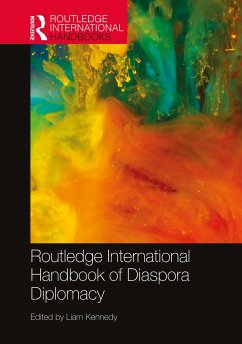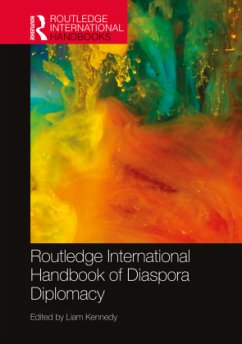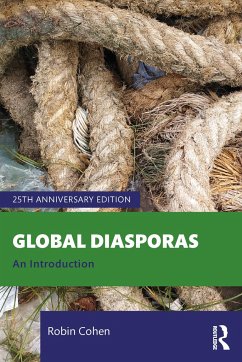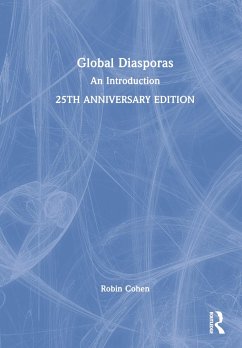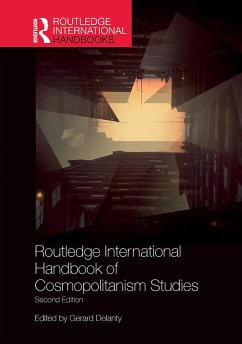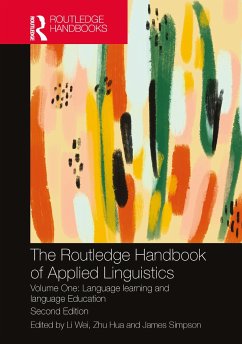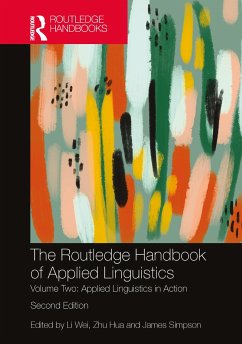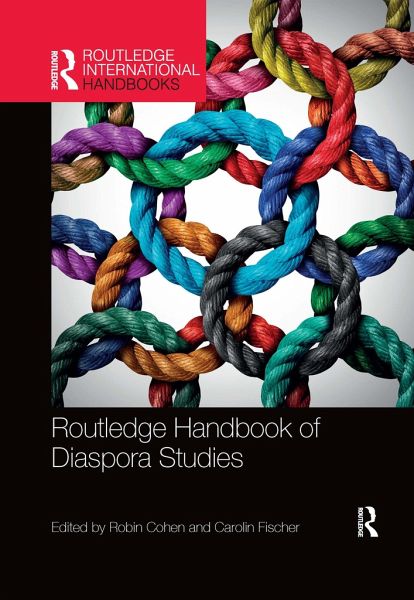
Routledge Handbook of Diaspora Studies
Versandkostenfrei!
Versandfertig in 6-10 Tagen
51,99 €
inkl. MwSt.

PAYBACK Punkte
26 °P sammeln!
The word 'diaspora' has leapt from its previously confined use - mainly concerned with the dispersion of Jews, Greeks, Armenians and Africans away from their natal homelands - to cover the cases of many other ethnic groups, nationalities and religions. But this 'horizontal' scattering of the word to cover the mobility of many groups to many destinations, has been paralleled also by 'vertical' leaps, with the word diaspora being deployed to cover more and more phenomena and serve more and more objectives of different actors.With sections on 'debating the concept', 'complexity', 'home and home-m...
The word 'diaspora' has leapt from its previously confined use - mainly concerned with the dispersion of Jews, Greeks, Armenians and Africans away from their natal homelands - to cover the cases of many other ethnic groups, nationalities and religions. But this 'horizontal' scattering of the word to cover the mobility of many groups to many destinations, has been paralleled also by 'vertical' leaps, with the word diaspora being deployed to cover more and more phenomena and serve more and more objectives of different actors.
With sections on 'debating the concept', 'complexity', 'home and home-making', 'connections' and 'critiques', the Routledge Handbook of Diaspora Studies is likely to remain an authoritative reference for some time. Each contribution includes a targeted list of references for further reading. The editors have carefully blended established scholars of diaspora with younger scholars looking at how diasporas are constructed 'from below'. The adoption of a variety of conceptual perspectives allows for generalization, contrasts and comparisons between cases.
In this exciting and authoritative collection over 40 scholars from many countries have explored the evolving use of the concept of diaspora, its possibilities as well as its limitations. This Handbook will be indispensable for students undertaking essays, debates and dissertations in the field.
With sections on 'debating the concept', 'complexity', 'home and home-making', 'connections' and 'critiques', the Routledge Handbook of Diaspora Studies is likely to remain an authoritative reference for some time. Each contribution includes a targeted list of references for further reading. The editors have carefully blended established scholars of diaspora with younger scholars looking at how diasporas are constructed 'from below'. The adoption of a variety of conceptual perspectives allows for generalization, contrasts and comparisons between cases.
In this exciting and authoritative collection over 40 scholars from many countries have explored the evolving use of the concept of diaspora, its possibilities as well as its limitations. This Handbook will be indispensable for students undertaking essays, debates and dissertations in the field.





